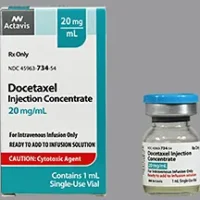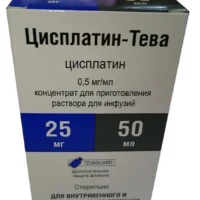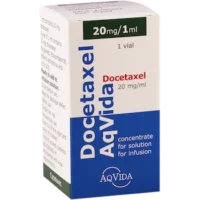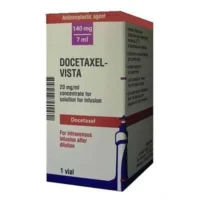Description
Ftorafur Hard Capsules 400 mg. №100 Vial
Ingredients
Ftorafur 400 mg per hard capsule, along with inactive ingredients.
Mechanism of Action
Ftorafur, a prodrug of 5-fluorouracil, interferes with DNA synthesis in cancer cells, leading to cell death.
Pharmacological Properties
Pharmacological Effects: Ftorafur exerts its anticancer effects by interfering with the synthesis of DNA and RNA in cancer cells, ultimately leading to cell death. This mechanism makes it a valuable agent in the treatment of various solid tumors.
Indications for Use
Ftorafur capsules are indicated for the treatment of certain types of cancer, such as colorectal cancer and gastric cancer.
Contraindications
Contraindications: Do not use Ftorafur capsules if you are allergic to any of the ingredients. It is important to discuss any existing medical conditions with your healthcare provider before starting this medication.
Side Effects
Common side effects of Ftorafur therapy include nausea, vomiting, and bone marrow suppression. Regular monitoring and blood tests are necessary to assess the patient’s response to treatment.
Usage Instructions
Dosage: The usual dosage is determined by the healthcare provider based on the patient’s condition. It is typically taken orally with water, as directed. Follow the instructions provided by your healthcare provider carefully. Do not exceed the recommended dosage. If you miss a dose, consult your doctor for guidance.
Benefits Compared to Analogues
Comparative Effectiveness: In comparative studies, Ftorafur has shown similar efficacy to other fluoropyrimidines like capecitabine in the treatment of colorectal cancer. Its oral formulation offers convenience and may be preferred in certain patient populations.
Suitable Patient Groups
Ftorafur is suitable for adult patients with colorectal cancer and gastric cancer. Special consideration may be needed for elderly patients and those with compromised renal function.
Storage and Shelf Life
Store Ftorafur capsules in a cool, dry place away from direct sunlight. Check the expiration date on the packaging and do not use the product after the stated shelf life.
Packaging Description
Ftorafur capsules are supplied in a vial containing 100 hard capsules of 400 mg each.
Clinical Evidence and Proven Effectiveness
Ftorafur has demonstrated efficacy in inhibiting DNA synthesis in cancer cells, leading to cell death. Clinical studies have shown promising results in terms of tumor regression and improved survival rates in patients with advanced cancer.




